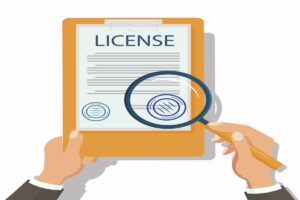You have worked hard to complete your education and earn your license as a chiropractor in Texas. However, as a licensed chiropractor, you are responsible for being aware of all rules and laws that apply to your profession and how they change over time. For instance, chiropractors must educate themselves on appropriate telehealth procedures as technology evolves to avoid rule violations. If you are accused of violating any of these rules or laws, you could face disciplinary action by the Texas Board of Chiropractic Examiners (the Board).
You have too much at stake to try and handle a complaint and potential disciplinary action on your own. Instead, call an experienced chiropractor license defense lawyer to protect your rights, license, and reputation. By getting legal representation, you can put yourself in a better position to safeguard your career.
Demand for Chiropractic Telehealth Services Increases
Although most people think of chiropractic services as a hands-on type of health service or treatment, that mode of thought began to change as other sectors of the healthcare profession increasingly began to recognize the need and explore the possibilities of telehealth. For example, with the advent of the COVID-19 pandemic, demand for remote services in all industries skyrocketed. The duration of the pandemic led to some chiropractors nationwide adopting telehealth services to continue to care for their patients. Although adjustments via conference call are impossible, nothing prohibits chiropractors from performing follow-up examinations, risk assessments, advice, periodic monitoring, and spinal care instructions.
In response to this need, more states began adopting formal policies, guidelines, and rules on telehealth that applied to chiropractors. While Texas already had some telehealth-related laws that liked applied to chiropractors, the Texas legislature recently took a further step by enacting legislation specific to chiropractors wishing to incorporate telehealth into their practices.
Chiropractic Telehealth Requirements in Texas
The Texas legislature recently enacted 22 Tex. Admin. Code §75.10 deals exclusively with chiropractors’ telehealth requirements. This code section became effective November 25, 2022, and outlines the circumstances under which a licensee may provide chiropractic telehealth services to patients.
Chiropractors must meet several requirements to provide chiropractic telehealth services, including the following:
- Obtain a patient’s written informed consent;
- Use the same standard of care when providing telehealth services to a patient as the chiropractor would in an in-person setting;
- Ensure the confidentiality of the patient’s clinical information as required by law; and
- Provide access to a copy of their license and the Board’s mandatory notice to the public form each time they provide telehealth services to a patient.
Telehealth and General Health Services
In addition to the specific code section listed above that specifically applies to chiropractors who utilize telehealth, the Board maintains that the provisions of Tex. Occ. Code §111 – Telemedicine, Teledentistry, and Telehealth – also generally apply to chiropractors. This code section generally applies to physicians, dentists, and other health professionals but is largely repetitive of 22 Tex. Admin. Code §75.10.
Enforcement Actions by the Board
Under 22 Tex. Admin. Code §80.3, the Board may take disciplinary action against any license or other individual who violates a statute or rules under its jurisdiction. Since the newly enacted rules on telehealth for chiropractors fall under the Board’s jurisdiction, violating those rules can lead to enforcement actions and disciplinary proceedings.
In initiating disciplinary actions, the Board shall consider the severity of the violation, any harm the misconduct caused the patient, the chiropractor’s circumstances, and its duty to protect the public. Sanctions for disciplinary action may include:
- License revocation
- License suspension
- License suspension with probation
- Written formal reprimand
- Administrative penalty or fine
- Retaking the jurisprudence exam, and
- Additional continuing education.
Furthermore, the Board may impose other conditions on a chiropractor’s ability to practice, including specific continuing education courses beyond the minimum required of licensees, passing specific examinations, restricting the type of patients treated or services provided, restricting the ability to supervise others, and undergoing psychological or medical evaluations and any recommended course of treatment.
Sanctions for Violating Telehealth Rules
22 Tex. Admin. Code §80.4(a) provides a matrix of sanctions based on common violations of rules or laws by chiropractors. Although this matrix does not specifically state the potential sanctions for violations of the newly enacted 22 Tex. Admin. Code §75.10, there are similar provisions that may indicate the type of sanctions a licensee might face for such violations. The maximum penalty for violations is up to $1,000 per day per violation, plus license revocation.
For example, violation of a rule adopted by the Board, including 22 Tex. Admin. Code §75.10 is a Category I violation. As a result, the Board shall report the violation to national practitioner databases as required. Other Category I violations that may implicate 22 Tex. Admin. Code §75.10 include failing to maintain the confidentially of client communications and records and failing to protect a patient’s privacy, dignity, safety, or confidential records.
On the other hand, failing to follow the Board’s Code of Ethics, including safeguarding the patient’s rights to privacy and informed consent, is a Category II violation, which means that the Board will report the violation to national practitioner databases only if the violation is egregious or the licensee has a significant history of similar administrative violations.
Count on Bertolino, LLP, to Defend Your Chiropractor License from Disciplinary Action
When a complaint threatens your ability to earn a living, you need a seasoned chiropractor license defense lawyer. We will defend you against these attacks on the credentials you have worked so hard to earn. Contact the lawyers of Bertolino LLP today by calling (512) 515-9518 or visiting us online.
Call or text (512) 476-5757 or complete a Case Evaluation form






